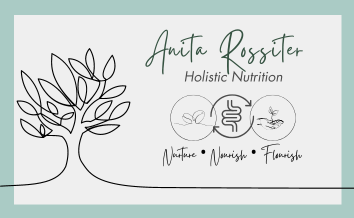|
I asked Dr Google for a definition of post-natal depression. This is what came back "depression suffered by a mother following childbirth, typically arising from the combination of hormonal changes, psychological adjustment to motherhood, and fatigue." I don't dispute this. But I think light needs to be shed on another very real yet infrequently recognised factor. This is the role of nutritional deficiencies. Being pregnant and then breastfeeding are major nutritional stressors on the body. They are important times of growth and nurturing new life. During this phase of life however, women are most vulnerable to the significant adverse effects of nutritional deficiencies on mood and health. During pregnancy nutrient stores are often depleted and when they are not restored early after birth, there is an increased risk of post-natal depression (PND). (1). Follow this with a second or third pregnancy in quick succession and there is an increased risk to the health outcomes of both mother and child from depletion of nutrients. COMMON NUTRITIONAL FACTORS ASSOCIATED WITH PND DEFICIENCIES The most common nutritional deficiencies found in women before conception are of zinc and magnesium. These deficiencies are known implications in unexplained infertility and also recurrent miscarriages. (2). Why are deficiencies of these two minerals common? There are a number of compounding reasons which are mainly related to our modern diet and the way we prepare foods today. Consuming the amount of cereal grains that we do today in our modern diet has a great impact on these minerals. Cereal grains contain phytic acid which acts by combining with zinc and magnesium making them insoluble and excreted from the body. Hence over time on a high grain diet, deficiency increases. Boiling food in water leaches out these minerals (hence if you boil veggies, always keep the water and use it in cooking or soup or drink!). Other factors limiting the uptake and availability of zinc and magnesium are impaired intestinal absorption and also excess consumption of soft drinks which contain phosphoric acid which reduces absorption of these minerals. ZINC DEFICIENCY Zinc deficiency is common in several psychiatric disorders shown in several studies. (3-7). Most studies have focussed on the role of zinc in the pathogenesis of depression however it has a possible role in ADHD, Alzheimer's disease, anorexia nervosa and autism as well. (8-11). In post-natal depression, there is a relationship between the severity of PND symptoms with lower blood zinc concentrations. (12) How do you know if you may be low in zinc, especially during pregnancy? Having 3 or more of the following brings zinc deficiency into question: * Stretch marks * Frequent infections * Irritability * Poor wound healing, eczema, acne, dermatitis * Loss of appetite * Poor sense of smell and taste * White marks on fingernails * Pale skin. Other factors that deplete zinc are stress stress stress (which pregnancy is physiologically), infections, illnesses, sugar consumption, coffee, alcohol, steroid drugs and the contraception pill. Zinc is required by a developing foetus to assist growth and development. During pregnancy, zinc requirements increase by 31% with the greatest need during late pregnancy which depletes stores and this continues during breast-feeding. But it's not solely the depletion of zinc which makes postnatal depression likely. Importantly zinc has an inverse relationship in the body with copper. It is like a see-saw; so as zinc levels go down, copper levels go up. More about copper in a moment! MAGNESIUM DEFICIENCY Estimates vary between 33-75% of the population consume less than the daily recommended amount of magnesium in their diet. Magnesium has been implicated in brain neuropathologies. Insufficient magnesium in the brain reduces serotonin (a neurotransmitter linked to our moods). (13) Again this is an important mineral in pregnancy. It regulates body temperature, controls genetic information, and is important in maintaining nerve and muscle function. Deficiency in pregnancy can reduce foetal growth and lead to an increased risk of pre-eclampsia. Symptoms of low magnesium in pregnancy include: * Headaches * Depression and anxiety * High blood pressure * Muscle cramps * Fatigue * Poor concentration and attention span * Hyper-irritability * Vertigo. Magnesium deficiency can be induced by stress hormones (again pregnancy is a stress physiologically on a woman's body) and by eating a diet heavy in calcium. The contractions of labour consume a lot of magnesium since magnesium is important in muscle contractions. This along with the extra stress hormones released during labour can exacerbate a deficiency and influence the development of PND. COPPER TOXICITY During pregnancy, the zinc:copper see-saw alters. Zinc levels fall and copper levels rise. This is the natural occurrence to best support the growing foetus; it helps develop their blood vessels. Normally following birth, levels of copper drop. The problem today is that mineral deficiencies before pregnancy, short duration between pregnancies (not allowing repletion of nutrients), drinking water from copper pipes, taking multivitamins containing copper and years of taking hormonal contraceptives are contributing to the failure of copper normalisation. Instead it remains elevated. There is an established link between excess copper and post-natal mood disorders. High copper levels are evident in the more severe post-natal reactions including bipolar disorder, severe anxiety disorders, obsessive compulsive disorder and psychosis. (12) An untreated high copper condition can persist for many years in women with a history of post-natal depression. Symptoms of high copper include: * Feelings of doom * Fatigue and exhaustion * Hypothyroid * Brain fog * Mood swings (often a very short temper) * Headaches, migraines * Depression * Cold hands, and/or feet * Super-sensitive, weepy * Chocolate (and sometimes coffee) cravings * Dry skin * Feeling loss of control * Adverse reaction to vitamins and minerals * Constipation * Panic attacks, high anxiety * Aching muscles or muscle cramps * Hypoglycaemia * Extreme PMS (sometimes extreme thoughts pre-menstrually). (14) A dramatic improvement in women with post-natal depression has been seen when they have been treated with supplements that lower copper and rebalance the copper:zinc ratio back to normal. This has been documented through Dr William Walsh of the Walsh Institute. (12) If you are someone who ticks some of the boxes for possible high copper symptoms, it could be worth a visit to a Bio-Balance trained physician. Bio-balance promotes the biochemical treatment of mental and behavioural disorders. To find practitioners in Australia, head to http://www.biobalance.org.au/ OTHER NUTRITIONAL CONSIDERATIONS IN POST NATAL DEPRESSION There are a number of other possible links to post-natal depression which include hormonal imbalances such as low progesterone. This in turn can affect the thyroid and adrenal hormones and present as post-natal depression. Low blood sugar is associated with depression and can be further perpetuated by comfort eating to remedy the low blood sugar leading to weight gain. Omega 3 fatty acid deficiency - these fats are essential to brain function. During pregnancy, omega-3's can become deplete while the foetal brain develops and also during breastfeeding. B vitamin deficiencies - in depression, folate, riboflavin, vitamin B12 and vitamin B6 are often implicated. Mood changes result from supplementation of these B vitamins. NUTRITION TO NOURISH MUMS Good nourishment is particularly critical during the pre-conceptual, pregnancy and post-natal periods. Currently I don't believe there is enough emphasis placed on educating women about the importance of nutrition not only to assist conception and grow a healthy baby, but for the health of the mother (now and in the future). Our food has changed and traditions have changed for example in Western societies, many traditional cultural post-birth and breastfeeding meals have been replaced with dry, low-nutrient foods. Some suggestions to improve health outcomes and decrease the likelihood of developing post-natal depression include: * Increase zinc intake - good sources are high quality animal protein, poultry, fish, organ meats. * Increase B vitamins - good sources are brewer's yeast, green leafy vegetables, beans and wheat germ. * Increase magnesium - good sources are seeds, nuts, beans, dark green leafy vegetables and seafood. * Eat foods rich in tryptophan - turkey, cottage cheese, eggs, lobster, mung beans, bananas, pineapple, spinach, asparagus, sunflower and flaxseed and oils. * Omega 3 oils - oily fish, nuts, seeds, grass fed meats, eggs from chickens fed omega 3's and supplementation of omega 3 in pregnancy and breastfeeding. * Avoid low fat diets - fats are needed to build a baby. Low fat diets have been linked to depression and thoughts of suicide according to a study in Nutrition Review, April 2000). * Good sleep patterns - go to bed and rest whenever possible to aid recovery and replenishment of nutrients. The more time spent awake, the greater the likelihood of nutrient depletion. IS THERE AN OPTIMAL GAP BETWEEN PREGNANCIES? Birth spacing? In all honesty it was something I hadn't really considered except that I wanted my kids to be close together in age to hopefully grow up as buddies! So researching this I was fascinated to find that there has been an "Invisible Norm" for many years in family planning that agreed that a 2 year birth interval is important for both child and maternal health. Research however recently commissioned by CATALYST (Consortium globally funded by the US Agency for International Development) shows that there is "substantially more health benefit gained from lengthening the birth interval beyond the previously recommended 2 years to a 3-5 birth interval." These findings impact both the health of the child and mother. (15) So in order to best recover from one birth and lactation and re-stock all the nutrient stores, a 3-5 year gap is best to avoid the health outcomes as a mother associated with nutrient deficiencies. REFERENCES AND FURTHER RESOURCES: 1. Bodnar L, Wisnar K, Nutrition and Depression: Implications for Improving Mental Health Among Childbearing-Aged Women, Biological Psychiatry, 2005 Nov1; 58(9): 679-685
2. Scholl TO, Reilly TM, Trace element and mineral nutrition in human pregnancy. In Bodgen JD, Klevay LM eds. Clinical Nutrition of the Essential Trace Elements and Minerals: The Guide for Health Professionals. Totawa, NJ: Human Press Inc, 2000: 115-138. 3. Marcellini F, Giuli C, Papa R, et al. Zinc status, psychological and nutritional assessment in old people recruited in five European countries: Zincage study. Biogerontology, 2006, 7:339-345. 4. Pepersack T, Rotsaert P, Benoit F, Willems D et al. Prevalence of zinc deficiency and its clinical relevance among hospitalised elderly. Archives of Gerontoloty and Geriatrics, 2001, 33:243-253. 5. Maes M, Vandoolaeghe E, Neels H, et al. Lower serum zinc in major depression is a sensitive marker of treatment resistance and of the immune/inflammatory response in that illness. Biological Psychiatry, 1997, 42:349-358. 6. Amani R, Saeidi S, Nazari Z et al. Correlation between dietary zinc intakes and its serum levels with depression scales in young female students. Biological Trace Element Research, 2010, 137:150-158. 7. Gronli O, Kvamme J, Friborg O, Wynn R. Zinc deficiency is common in several psychiatric disorders, PLoS ONE, 2013, 8(12): e82793. doi:10.1371/journal/pone.0082793 8. Villagomez A, Ramtekkar U. Iron, magnesium, Vitamin D and zinc deficiencies in children presenting with symptoms of Attention-Deficit/Hyperactivity Disorder, Children, 2014, 1:261-279; doi:10.3390/children1030261 9. Shcherbatykj I, Carpenter D. The role of metals in the etiology of Alzheimer's disease, 2007, Journal of Alzheimer's Disease, 11:191-205. 10. Katz R, Keen C, Litt I, Hurley L et al. Zinc deficiency in anorexia nervosa. Journal of Adolescent Health Care, 1987 8(5):400-406. 11. Yorbik O, Akay C, Sayal A, et al. Zinc status in autistic children. The Journal of Trace Elements in Experimental Medicine, 2004, 17(2):101-107 12. Crayton JW, Walsh WJ. Elevated serum copper levels in women with a history of post-partum depression. Journal of Trace Elements in Medical Biology, 2007;21:17-21. 13 Eby GA, Eby KL. Magnesium for treatment-resistant depression: a review and hypothesis, Medical Hypotheses, 2010, 74(4):649-660. 14. Casper J, Copper Toxicity (self-evaluation), nutritionalbalancing.org/center/htma/science/articles/copper-toxicity.php 15. Optimal Birth Spacing: New Research from Latin America on teh Association of Birth Intervals and Perinatal, Maternal and Adolescent Health, 2002, CATALYST consortium. Available at: http://www.rhcatalyst.org/site/DocServer/OBSIEngConde.pdf?docID=139
4 Comments
|
Anita RossiterHolistic Nutritionist. Categories
All
Archives
April 2019
|





 RSS Feed
RSS Feed